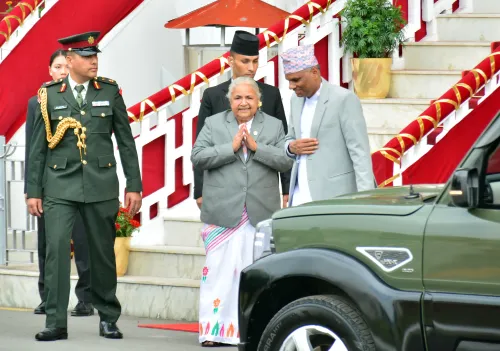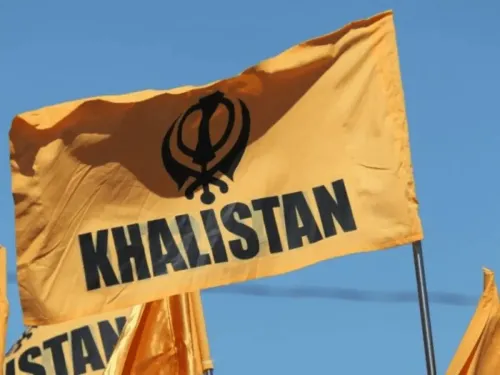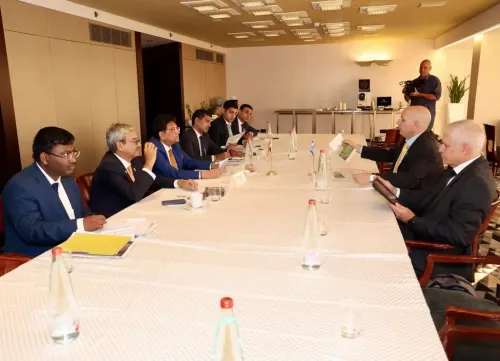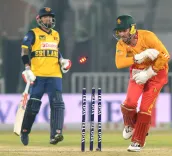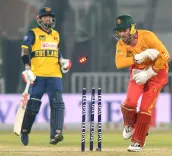Are US and Iran Set for a Major Clash at the UN Over Nuclear Strikes?
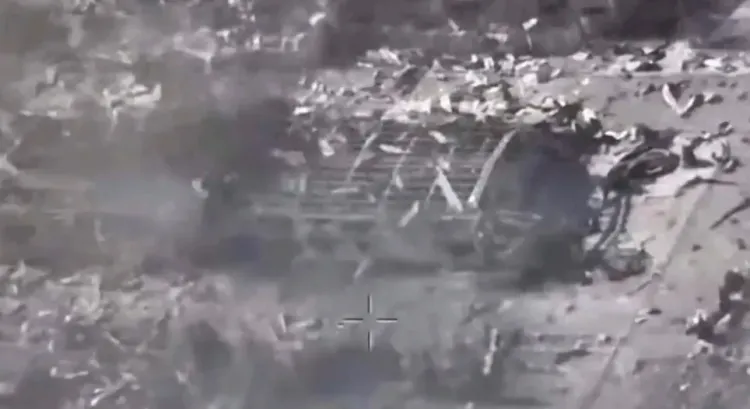
Synopsis
Key Takeaways
- US strikes target key Iranian nuclear facilities.
- UN Security Council meeting escalates tensions.
- Iran vows to respond to US actions.
- Global implications of military actions are significant.
- Call for diplomatic negotiations remains critical.
United Nations, June 23 (NationPress) The United States and Iran engaged in a fierce exchange of accusations during an emergency session of the United Nations Security Council on Monday (Indian time), following US military operations targeting three significant Iranian nuclear facilities. This action has attracted global scrutiny and raised alarms regarding the potential for broader conflict.
In her address to the Council, a day after US President Donald Trump confirmed the strikes on the Fordow, Natanz, and Esfahan nuclear sites, Acting US Ambassador to the UN, Dorothy Camille Shea, stated that the operations were intended to dismantle Iran's nuclear enrichment capabilities and mitigate the nuclear threat posed by what she referred to as the “world’s foremost state sponsor of terror.”
She emphasized, “This operation sought to eliminate a longstanding but rapidly escalating source of global insecurity and to aid our ally Israel in our inherent right of collective self-defence consistent with the UN Charter.”
She condemned Iran for obstructing transparency in its nuclear endeavors, accusing it of having “stonewalled good-faith efforts” in recent discussions.
She further stated, “For 40 years, the Iranian government has called for 'Death to America' and 'Death to Israel' and posed a constant menace to the peace and security of its neighbours, the US, and the entire world.”
Shea cautioned Tehran against any further escalation, declaring, “As President Trump said, any Iranian attack — direct or indirect — against Americans or American bases will be met with devastating retaliation.”
In contrast, Iran's UN envoy Amir Saeid Iravani denounced the strikes as a “blatant crime” and accused Israeli Prime Minister Benjamin Netanyahu of maneuvering Trump into a conflict that began on June 13 with an Israeli assault on Iranian nuclear sites and scientists.
“The US decided to destroy diplomacy,” Iravani remarked, adding that Iran's military would determine the “timing, nature and scale” of a measured response.
He directly blamed Netanyahu, stating, “The internationally wanted war criminal Netanyahu succeeded in hijacking US foreign policy, dragging the US into yet another costly, baseless war.”
He described the strikes as “profoundly heartbreaking,” asserting, “Today, another stain was recorded in the political history of the US.”
He reminded the Council that the US, a founding member of the UN and signatory to the Nuclear Non-Proliferation Treaty (NPT), had resorted to military force once again despite being the only nation to have deployed nuclear weapons in conflict.
Iravani criticized Israel, labeling it an “outlaw nuclear-armed regime that refused to join the NPT” and has perpetuated a “false narrative” about Iran’s nuclear ambitions without providing “a shred of evidence.”
“This is a historic test for this Council, for the United Nations as a whole. If this Council fails to act and condemn this blatant aggression, the stain of complicity will forever remain on its conscience, as it does with Gaza,” he warned.
In defense of US actions, Israel's UN Ambassador Danny Danon stated that “history changed” with the strikes.
“The US, the leader of the free world, removed the greatest existential threat facing the free world. Just like our Operation Rising Lion, this was not a war of choice. This action was a necessity. It was a righteous act for the United States, for Israel, for the Middle East, and for the world,” he said.
Danon commended American leadership during the crisis, stating, “Let the record show that when the world stood at the edge of a nuclear disaster, America stepped forward.”
He accused Tehran of using negotiations as a guise while advancing its missile and uranium enrichment efforts.
“Make no mistake, the cost of inaction would have been catastrophic. A nuclear Iran would have been a death sentence just as much for you as it would have for us,” he asserted.
Furthermore, Danon noted that Iran's influence extends beyond its borders, arming militias in Iraq, funding the Houthis in Yemen, plotting assassinations in Europe, and threatening Western capitals with its expanding ballistic missile capabilities.
UN Secretary-General Antonio Guterres expressed deep concern over the situation, warning that the US bombing of Iran's nuclear sites represents a “perilous turn” for a region already under significant strain.
“We must act immediately and decisively to halt the fighting and return to serious, sustained negotiations on the Iran nuclear program. We need a credible, comprehensive and verifiable solution, one that restores trust,” Guterres stated.
He highlighted the pivotal moment facing the international community: “We face a stark choice amid the escalation in the Middle East. One way leads to wider war, deeper suffering and serious damage to the international order. The other leads to de-escalation, diplomacy and dialogue. We know which way is right.”

